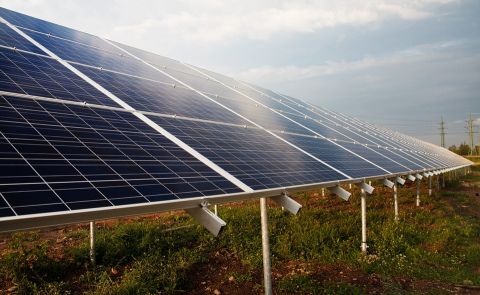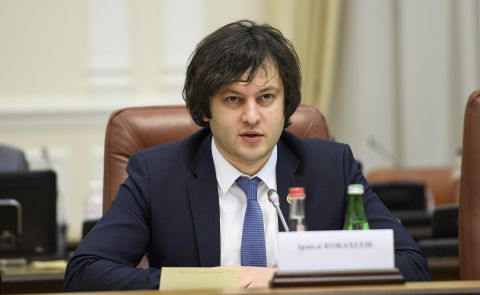
Pashinyan Refutes Claims of Territorial Concessions, Outlines Armenia's Diplomatic Strides
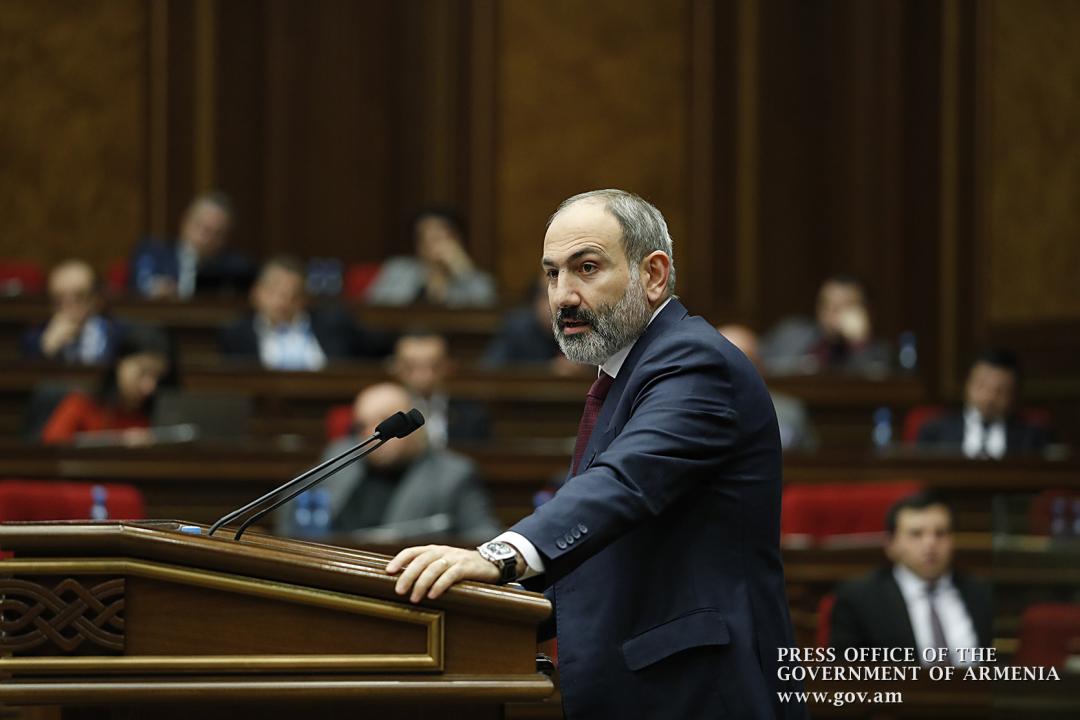
Delimitation process with Azerbaijan
On April 10, Armenian Prime Minister Nikol Pashinyan addressed the issue of border delimitation, emphasizing that while initiating the delimitation process from the Tavush region may help prevent a new war between Armenia and Azerbaijan, it does not guarantee it.
During a discussion on the government program in the parliament of Armenia, Pashinyan stated, "In the context of delimitation in Tavush, questions often arise about whether delimitation in Tavush guarantees Armenia's security. The answer is that it does not guarantee it." He highlighted that failing to address the issues would perpetuate threats to the country's security, urging to neutralize this negative outcome.
Pashinyan explained that resolving the delimitation issue does not ensure immunity from new attacks on Armenia's territory, but neglecting it risks significant escalation. He noted the historical significance of Armenia's territorial integrity as a deterrent against countries with territorial ambitions, asserting that disputes over the internationally recognized borders could lead to hostility.
Furthermore, Pashinyan warned that clinging to the concept of "historical Armenia" could perpetuate enmity with neighboring countries and perpetuate the need for external support. He cautioned that such reliance might undermine the country's sovereignty and lead to dependence on external powers for survival.
Relations with Emmanuel Macron
During the discussion of the government program in the Armenian parliament today, April 10, Prime Minister Nikol Pashinyan acknowledged the significant role played by French President Emmanuel Macron in facilitating the Prague Accords reached in October 2022.
Pashinyan emphasized the importance of these agreements as a vital step towards peace in the region. He expressed his gratitude towards President Macron, stating, "I had no occasion to speak before, but now I will say that French President Emmanuel Macron played a colossal role in reaching these agreements."
Furthermore, Pashinyan condemned attacks on President Macron and France, describing them as surprising, unacceptable, and incomprehensible in light of Macron's significant contribution to the peace process in the South Caucasus.
Issue of deployment of CSTO peacekeepers
Pashinyan cautioned against the consequences of resorting to military actions and the deployment of CSTO peacekeepers in response to Azerbaijan's invasion of Armenian territory in May 2021. He warned that such actions could result in the establishment of an externally controlled government in Armenia.
Pashinyan recounted the events following Azerbaijan's incursion deep into Armenian territory in the Sotq (Gegharkunik province) - Khoznavar (Syunik province) region. He mentioned the demands from certain quarters to initiate military actions to prompt intervention by the CSTO. However, Pashinyan highlighted the contradiction between these demands and the CSTO's de jure commitments, suggesting that the organization's involvement could have been interpreted as an attempt to impose external control over Armenia's security.
The Prime Minister cautioned against yielding to emotions at that critical juncture, warning of a potential chain of events including military actions on Armenian soil, postponement of early parliamentary elections, absence of elected authorities, deployment of CSTO peacekeepers, and ultimately, the imposition of externally controlled governance leading to the dissolution of the Armenian state.
However, Pashinyan noted that the Armenian people responded by participating in the elections, which were recognized as free and democratic. This, he suggested, prevented the scenario of external control and dissolution of the Armenian state.
Armenian-Russian relations
Prime Minister Pashinyan addressed the state of Armenian-Russian relations, acknowledging that they are currently facing challenges. However, he underscored their critical importance for Armenia's statehood, economy, and security.
Pashinyan reiterated that the Armenian authorities have not faltered in their obligations to Russia, emphasizing that there has not been a single instance where Armenia failed to fulfill its commitments. On the contrary, he noted, there have been numerous instances where Russia's obligations were not met.
Despite these challenges, Pashinyan emphasized that Armenia does not seek confrontation with Russia. He highlighted the positive aspects of the bilateral relationship and expressed a desire to address issues constructively.
However, Pashinyan also emphasized the need to understand the deeper dynamics in bilateral relations, characterizing the shift from historical Armenia-Russia relations to contemporary Armenia-Russia relations as a significant transformation. He likened this transformation to the internal changes occurring within Armenia, suggesting that efforts should be made to turn this transformation into a positive narrative. Pashinyan affirmed Armenia's readiness to engage in such work with Russia.
Relations with Turkey
During the discussion of the government program (2021-2026) in parliament, Prime Minister Nikol Pashinyan emphasized Armenia's expectation for the implementation of previously agreed and officially recorded agreements in its relations with Turkey.
Pashinyan highlighted the significance of opening the Armenia-Turkey land border for citizens of third countries and holders of diplomatic passports, emphasizing that this step would mark a significant milestone for the region. He affirmed that efforts towards this goal will be continued.
Furthermore, the Prime Minister addressed a socio-psychological aspect of Armenia's relations with Turkey, distinguishing between "Armenia-Turkey relations" and "Armenian-Turkish relations." While acknowledging similarities between the two formulations, Pashinyan emphasized their differences, indicating a nuanced approach to understanding and navigating the dynamics between the two countries.
Addressing concerns raised by Seyran Ohanyan
During the discussion, Prime Minister Nikol Pashinyan addressed concerns raised by Seyran Ohanyan, head of the parliamentary faction of the opposition Armenia bloc and former Defense Minister, regarding the danger posed by the existence of an 'elected government of [the separatist] Nagorno-Karabakh' to the current Armenian authorities.
Pashinyan acknowledged the goals outlined in Armenia's 2019 National Security Strategy, which aimed to ensure the self-determination of the people of Nagorno-Karabakh and achieve a settlement of the Karabakh conflict acceptable to both Yerevan and Stepanakert. He then elaborated on concerns about certain representatives of Nagorno-Karabakh's former political elite seeking to seize power in Armenia.
The Prime Minister revealed that his government possesses evidence indicating that a group of representatives from Nagorno-Karabakh had warned about potential consequences if certain actions were pursued. Pashinyan suggested that this group had a plan to take power in Armenia if the situation in Nagorno-Karabakh deteriorated.
Regarding the recent changes in Nagorno-Karabakh leadership in September 2023, Pashinyan pointed out the lack of adequate response from the Armenian authorities to the resignations and subsequent developments. He emphasized the importance of responsible governance, highlighting the need for an appropriate reaction to evolving situations.
Claims suggesting the surrender of Armenia's Tavush region territories
Prime Minister Nikol Pashinyan has refuted claims suggesting the surrender of Armenia's Tavush region territories to Azerbaijan, labeling such assertions as 'absolute lies' spread by certain political factions for political gain.
Addressing reporters, Pashinyan emphasized that there is no negotiation regarding even a millimeter of Tavush region territory. He dismissed the notion that any part of Tavush is negotiable, characterizing it as misinformation propagated by specific political entities.
Regarding the delineation of the Armenian-Azerbaijani border, Pashinyan noted the absence of agreement on the maps. However, he cited the 1991 Alma-Ata Declaration as a legal basis. Additionally, he stated that the four villages in question within Tavush have never been part of either the Armenian SSR or the Republic of Armenia.
Responding to concerns about security guarantees in the event of transferring these territories to Azerbaijan, Pashinyan asserted that there can be no absolute guarantees. He argued that historical precedents demonstrate the absence of such guarantees, adding that they neither have existed nor exist presently.
See Also

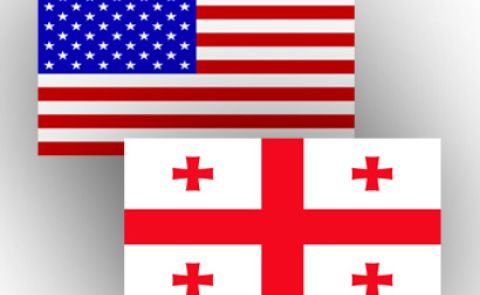
Kobakhidze Meets US Senator Daines to Discuss Bilateral Relations
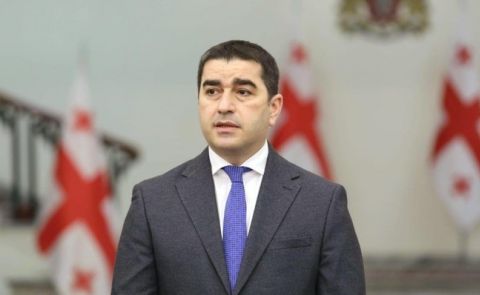
Georgian Speaker Condemns Embassy Travel Warnings as Economic Attack
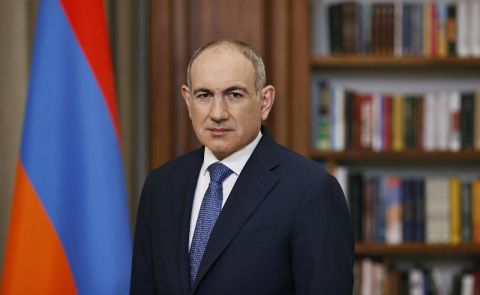
Political Crisis Deepens Between Armenian Government and Apostolic Church After Pashinyan’s Remarks
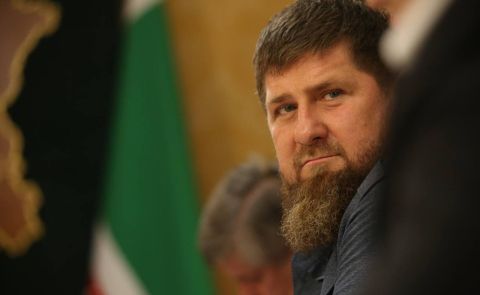
Ramzan Kadyrov Awards Title to Ingush Businessman
